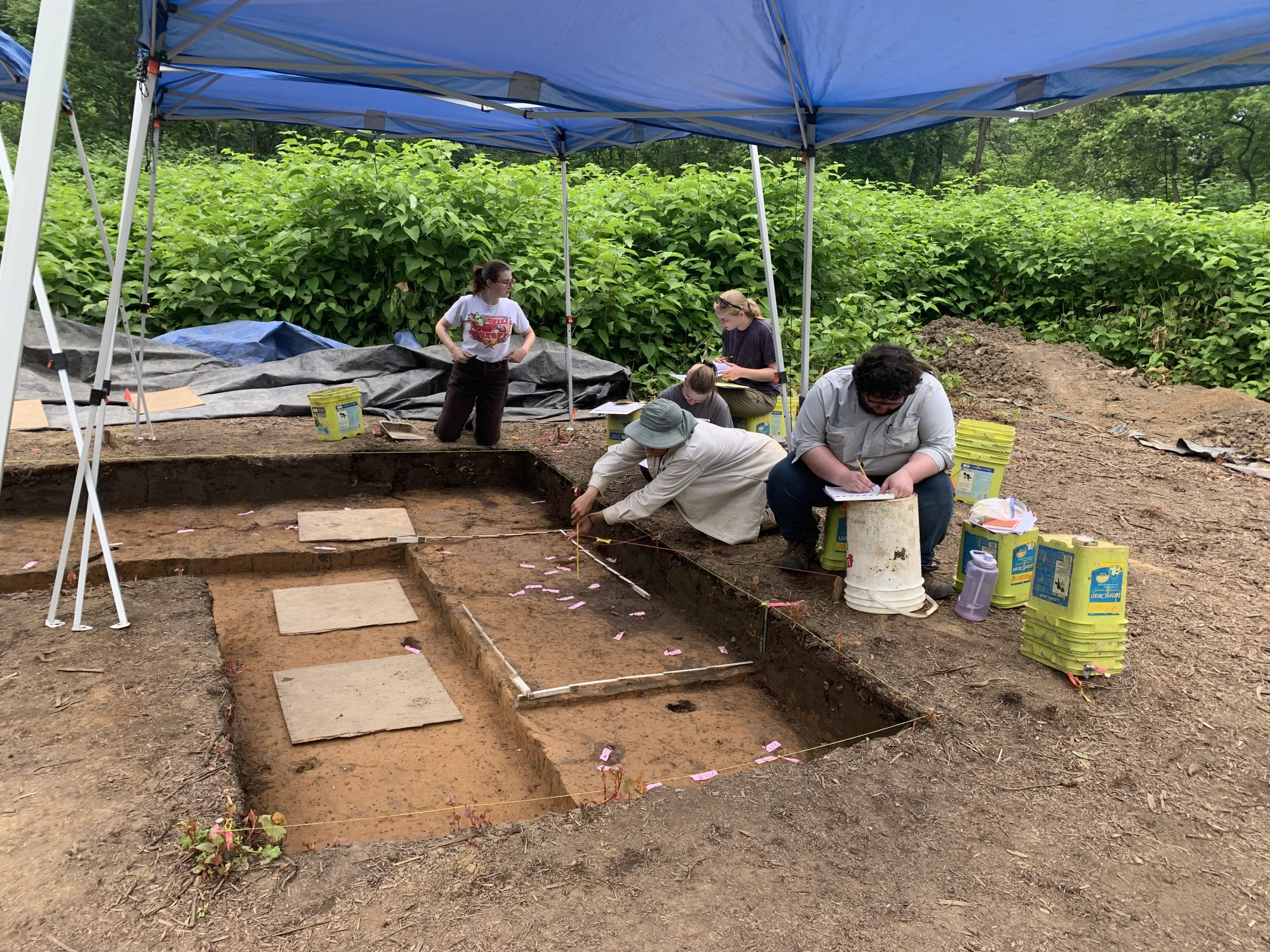The Archaeological Conservancy’s Squirrel Hill Preserve, near the modern town of New Florence, Pennsylvania, is a Johnston-phase Monongahela village (ca. 1450-1590). Indiana University of Pennsylvania (IUP) has conducted summer field school research at the site since 2016, with the most recent work taking place during the summer of 2024. Under the supervision of Lara Homsey-Messer and William Chadwick, IUP students participated in a combination of geophysical survey, shovel testing and test excavations, and geomorphic augering at the site.
The Squirrel Hill site has been known to archaeologists since the 1950s, but little systematic investigation of the site has taken place since then. It has been heavily collected by local residents for decades but was purchased by the Archaeological Conservancy in 2005 in order to protect it from further damage and minimize the loss of data. Despite being listed in the National Register of Historic Places, many research questions remain. Researchers hope to:
- verify occupation and cultural affiliations
- characterize the internal arrangement of houses, plaza, and stockades
- contextualize its relationship with other Johnston Phase sites in western Pennsylvania
- reconstruct the paleo-landscape and environmental change through time.
Students participating in the field school captured their experience and discussed their findings in the video below. We’re pleased to share their work as an example of the importance of preserving archaeological sites like Squirrel Hill for future research and enjoyment.
Brian Fritz of ArchaeologyX also recorded some of the field school experience and shared his film with us.




